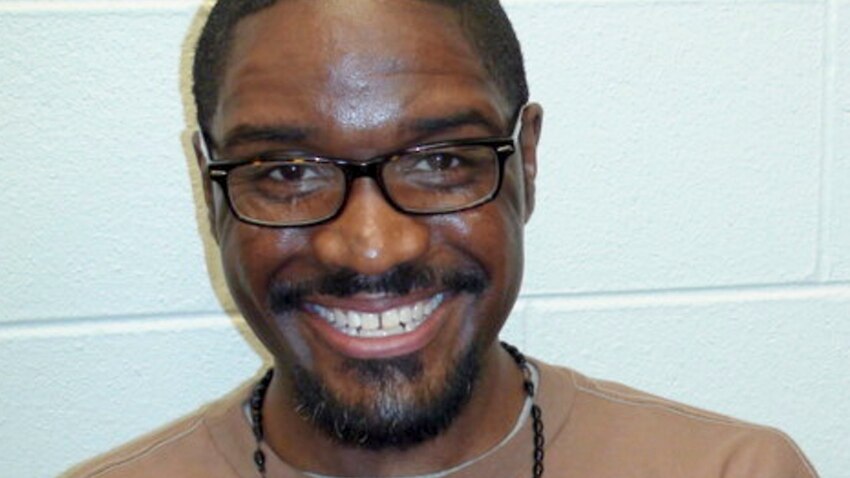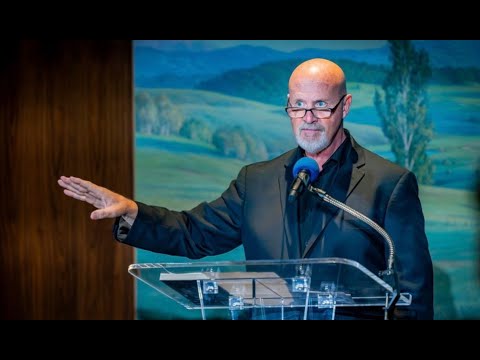A convicted murderer died by lethal injection on Thursday as the administration of President Donald Trump carries out a series of federal executions in its waning days in power, ignoring calls for clemency and COVID-19 outbreaks behind bars.
Brandon Bernard, a 40-year-old African-American inmate, was put to death at a prison in Terre Haute, Indiana, for his role in a 1999 double murder in Texas committed when he was 18 years old.
More than 500,000 people had signed petitions urging Mr Trump to commute Bernard’s sentence to life in prison, citing his age at the time of the crime and his good behaviour as an inmate.
Among those lending their support to Bernard was reality television star Kim Kardashian.
“At just a few months past 18 his brain was still developing,” Kardashian said. “While Brandon did participate in this crime, his role was minor compared to that of the other teens involved, two of whom are home from prison now.”
Bernard and four other black teenagers were convicted of abducting youth ministers Todd and Stacie Bagley, a white couple from Iowa. They forced them to withdraw cash before eventually shooting and burning them in their car.
Because the crime took place on a US military base it was tried in federal court.
The shooter, then-19-year-old Christopher Vialva, and Bernard, who lit the car on fire, were sentenced to death in 2000.
“Brandon made one terrible mistake at age 18. But he did not kill anyone, and he never stopped feeling shame and profound remorse for his actions in the crime that took the lives of Todd and Stacie Bagley,” his lawyer Robert C. Owen said in a statement after his death.
Vialva was executed by lethal injection in September but other participants who were under the age of 17 at the time avoided the death penalty.
Without a last-minute reprieve, Bernard became the ninth federal inmate to be executed since July, when the Trump administration resumed federal executions after a 17-year hiatus.
For 131 years, outgoing presidents traditionally suspended federal executions during the transition period.
‘Out of step’
The last federal execution is set for 15 January, just five days before Democrat Joe Biden is to be sworn into office. Mr Biden has pledged to end federal executions.
Before July, there had been only three federal executions in the past 45 years.
The Trump administration is “out of step with the way that the federal government has approached the death penalty in recent history,” said Ngozi Ndulue, research director at the Death Penalty Information Centre (DPIC).
Ms Ndulue said it is also at odds with public opinion on the death penalty.
Earlier Thursday, about 20 anti-death penalty protestors gathered outside the Justice Department holding signs reading “All Life Is Precious” and chanting “execution is not the solution”.
“There’s no reason to be carrying out these executions,” said Abraham Bonowitz, 53, director of Death Penalty Action. “We know that we can be saved from dangerous offenders and hold them accountable without executions.”
Chaz Howard, a 42-year-old minister, said he was “very sad that in the final days of this administration they’re rushing to kill people.”
“This administration is the opposite of pro-life. It’s like the most pro-death administration we’ve had in a long time,” Howard said.
Ms Ndulue said it is “really striking” that the government is “aggressively pursuing executions in the middle of a global pandemic.”
The coronavirus pandemic is raging in the United States with nearly 3,000 deaths reported on Thursday, bringing the total number to more than 290,000.
Amid the health crisis, even states such as Texas which carry out the most executions have suspended them out of concern for prison staff, witnesses and the relatives of victims.
In the week following the last federal execution, carried out on 19 November, six prison workers and the spiritual advisor of the condemned man tested positive for COVID-19.
Mr Trump’s attorney general, Bill Barr, has rebuffed calls for the federal executions to be suspended saying the government is obligated to carry out the sentences imposed by the courts for “heinous” crimes.
Ms Ndulue also pointed to racial disparities in the application of capital punishment in the United States.
Five of the first six federal prisoners executed since July were white. The other was a Native American.
The two latest inmates to be executed were Black, however, and so are four of the next five.
The other is a white woman, Lisa Montgomery. Montgomery would be the first woman executed by the federal government since 1953.







